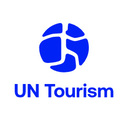UNWTO, ONCE Foundation And ENAT - Delivering Accessible Tourism For All
The World Tourism Organization (UNWTO) will continue to build on its successful partnership with the Spanish ONCE Foundation and the European Network for Accessible Tourism (ENAT). The three parties have agreed to extend their partnership agreement for a further four years to ensure that their work to improve accessibility, in every part of the tourism value chain, continues during and beyond the pandemic.
The joint work will continue to focus on the promotion of good practices during the current crisis, the application of standards, the measurement of accessible tourism, as well as labour inclusion and institutional disability inclusive policies. The three partners are currently collecting success stories of destinations and companies which have adopted new sanitary protocols to facilitate access to travel and tourism for all, including both residents and visitors. In line with the key UNWTO Recommendations released early on during the pandemic, the Accessibility Champions initiative is still open for submissions illustrating how the guidelines to restart tourism without imposing new obstacles are being successfully implemented. The most outstanding cases will be promoted by the partners through an e-publication and webinars.
The three partners are also committed to raising awareness of the forthcoming ISO Standard on Tourism for All. All three have worked with the International Standardization Organization (ISO) on the new requirements and recommendations. The ISO standard will represent a milestone, being the first global standard aimed at implementing and improving accessibility throughout the tourism value chain.
The awareness-raising work will sensitize institutions, governments and service providers o the importance of accessibility for all and inclusion. It will make clear that this is not only a question of human rights and equal opportunities, but also a major competitive advantage for destinations and the private sector.
UNWTO, the ONCE Foundation and ENAT jointly state: "Accessibility for all is about service quality, innovation and comfort for all tourists, new sources of revenue and new clients with disabilities, seniors and families with young children, among many other individuals, with specific access requirements. By adopting Universal Design principles in the development of environments and services, the tourism sector can fulfil its moral responsibility and, in many countries, legal obligations to cater to those with specific requirements, making tourism for all a reality."
About UN Tourism
The World Tourism Organization (UN Tourism) is the United Nations agency responsible for the promotion of responsible, sustainable and universally accessible tourism.
As the leading international organization in the field of tourism, UN Tourism promotes tourism as a driver of economic growth, inclusive development and environmental sustainability and offers leadership and support to the sector in advancing knowledge and tourism policies worldwide.
Our Priorities
Mainstreaming tourism in the global agenda: Advocating the value of tourism as a driver of socio-economic growth and development, its inclusion as a priority in national and international policies and the need to create a level playing field for the sector to develop and prosper.
Promoting sustainable tourism development: Supporting sustainable tourism policies and practices: policies which make optimal use of environmental resources, respect the socio-cultural authenticity of host communities and provide socio-economic benefits for all.
Fostering knowledge, education and capacity building: Supporting countries to assess and address their needs in education and training, as well as providing networks for knowledge creation and exchange.
Improving tourism competitiveness: Improving UN Tourism Members' competitiveness through knowledge creation and exchange, human resources development and the promotion of excellence in areas such as policy planning, statistics and market trends, sustainable tourism development, marketing and promotion, product development and risk and crisis management.
Advancing tourism's contribution to poverty reduction and development: Maximizing the contribution of tourism to poverty reduction and achieving the SDGs by making tourism work as a tool for development and promoting the inclusion of tourism in the development agenda.
Building partnerships: Engaging with the private sector, regional and local tourism organizations, academia and research institutions, civil society and the UN system to build a more sustainable, responsible and competitive tourism sector.
Our Structure
Members: An intergovernmental organization, UN Tourism has 160 Member States, 6 Associate Members, 2 Observers and over 500 Affiliate Members.
Organs: The General Assembly is the supreme organ of the Organization. The Executive Council take all measures, in consultation with the Secretary-General, for the implementation of the decisions and recommendations of the General Assembly and reports to the Assembly.
Secretariat: UN Tourism headquarters are based in Madrid, Spain. The Secretariat is led by the Secretary-General and organized into departments covering issues such as sustainability, education, tourism trends and marketing, sustainable development, statistics and the Tourism Satellite Account (TSA), destination management, ethics and risk and crisis management. The Technical Cooperation and Silk Road Department carries out development projects in over 100 countries worldwide, while the Regional Departments for Africa, the Americas, Asia and the Pacific, Europe and the Middle East serve as the link between UN Tourism and its 160 Member States. The Affiliate Members Department represents UN Tourism's 500 plus Affiliate members.
UN Tourism Communications Department
+34 91 567 8100
UN Tourism
